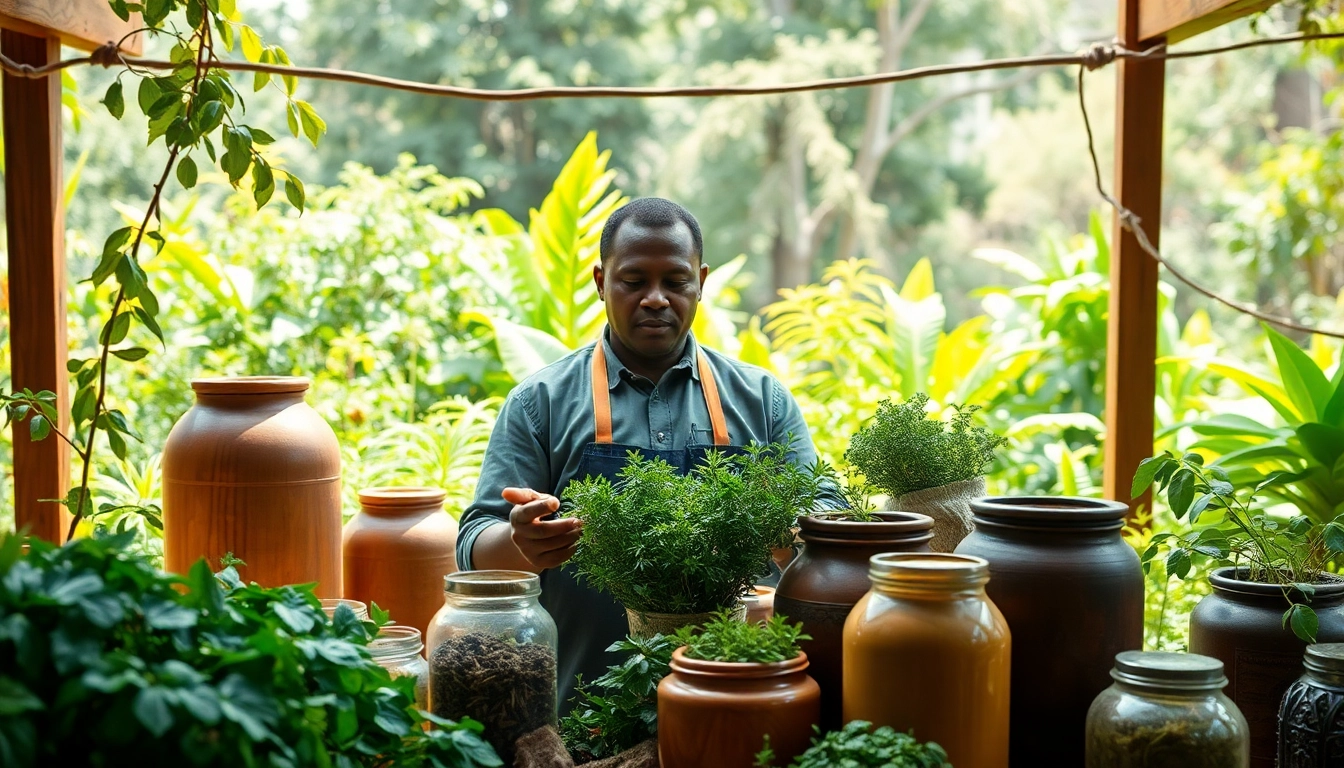Understanding Louban Dakar
What is Louban Dakar?
Louban Dakar, also known as frankincense, is a resin derived from the Boswellia tree. The word “Louban” translates to frankincense in Arabic, while “Dakar” refers to the geographical ties some species of Boswellia have with regions around the Dakar area in West Africa. The resin has been revered for centuries in various cultures, primarily for its aromatic properties and its integral role in spiritual and medicinal practices.
Louban Dakar is not just an aromatic substance; it encapsulates a rich history that intertwines with numerous ancient civilizations, demonstrating its significant cultural roots. While it is primarily utilized today in religious ceremonies and traditional incense burning, its value extends beyond the aromatic and into the realms of health and wellness. To delve deeper into its multidimensional aspects, louban dakar must be examined through ecological, cultural, and medicinal lenses.
Cultural Significance in Herbal Medicine
The use of Louban Dakar in herbal medicine dates back thousands of years, featured prominently in ancient texts and practices across different societies. In regions like the Middle East and parts of Africa, the resin has been part of rituals intended for purification and healing. Traditionally, it has been used to enhance clarity, meditation, and spiritual awareness, showcasing its integral role in holistic practices.
In Ayurvedic medicine, Louban Dakar is utilized for its therapeutic qualities, believed to help with inflammation, respiratory issues, and as an antidepressive agent. The resin acts not only as a medicinal herb but also as a symbol of peace and prosperity, often gifted during important social gatherings. Its versatility and historical richness underscore the importance of Louban Dakar in various cultures globally.
Common Uses and Benefits
Louban Dakar boasts several benefits that make it a prized material in both traditional and modern practices. Common uses include:
- Aromatherapy: When burned, Louban Dakar emits a soothing aroma that is believed to promote relaxation and mental clarity. It is often used in essential oil forms to enhance meditation practices.
- Anti-inflammatory Properties: Scientific studies have indicated that the active compounds in Louban Dakar can help reduce inflammation in the body, making it beneficial for conditions such as arthritis and inflammatory bowel diseases.
- Mental Clarity: The resin is said to enhance cognitive functions and improve memory retention, which can aid those experiencing cognitive decline or stress-associated mental fatigue.
- Skin Health: Used in topical forms, Louban Dakar can help in treating skin ailments due to its antiseptic and astringent qualities. The resin can also promote wound healing and reduce scarring.
Growing and Harvesting Louban Dakar
Ideal Growing Conditions
Growing Louban Dakar requires understanding its natural habitat. The Boswellia tree thrives in arid climates, often found in regions like Africa and the Arabian Peninsula. Ideal conditions include:
- Climate: Louban Dakar prefers hot, dry environments with well-drained soils. Temperatures typically range from 20°C to 30°C (68°F to 86°F).
- Soil: Sandy soil is most conducive for proper root development. Soil must be rich in nutrients, yet allow for drainage.
- Watering: The trees are drought-resistant; overwatering can harm their growth, thus minimal watering is recommended.
Best Practices for Harvesting
Harvesting Louban Dakar is a delicate process that requires skill and timing. Best practices involve:
- Timing: Harvest the resin during specific seasons to ensure optimal yield, typically between June and September when the resin is mature.
- Technique: The extraction of resin is done by making shallow incisions on the bark of the Boswellia tree, allowing the sap to ooze out. It should not be too deep to prevent damaging the tree.
- Collection: The collected resin should be allowed to harden for a few days before it is removed and cleaned from any bark residue.
Sustainable Sourcing Techniques
To ensure the longevity of Louban Dakar’s availability, sustainable sourcing strategies are critical:
- Selective Harvesting: Only a fraction of resin should be harvested from any single tree during a season to minimize stress on the plant.
- Replanting Initiatives: Engaging in reforestation efforts helps maintain Boswellia tree populations and their habitat.
- Community Engagement: Involving local communities in sustainable practices provides them with economic benefits and encourages care for the trees.
Health Benefits of Louban Dakar
Key Nutritional Components
The health benefits of Louban Dakar stem from its rich array of bioactive compounds. Key nutritional components include:
- Boswellic Acids: These acids are known for their anti-inflammatory properties and can be effective in treating joints and digestive system disorders.
- Essential Oils: The resin contains oils that provide antimicrobial benefits. These can help in preventing infections when applied topically.
- Terpenes: Present in Louban Dakar, terpenes have been shown to promote relaxation and mood stabilization, making them valuable in mental health support.
Medicinal Properties and Uses
The medicinal potential of Louban Dakar is vast, with various studies affirming its effectiveness in several therapeutic areas:
- Respiratory Health: Louban Dakar can alleviate respiratory conditions, aiding breathing and reducing mucus in ailments such as asthma and bronchitis.
- Anti-Cancer Properties: Preliminary research indicates that compounds in Louban Dakar may contribute to inhibiting cancer cell proliferation, encouraging further investigation into its potential as a complementary treatment for cancer.
- Mood Enhancement: Its effects on mental health, including reducing anxiety and depression symptoms, have made it a focus for researchers interested in depression management.
Potential Side Effects and Precautions
While Louban Dakar has many benefits, it is essential to recognize potential side effects:
- Allergic Reactions: Some individuals may experience skin irritation or other allergic responses upon contact or consumption.
- Interactions with Medications: Individuals on medications (especially anticoagulants) should consult healthcare professionals before consuming Louban Dakar.
- Pregnancy and Nursing Precautions: Pregnant or breastfeeding women are advised to avoid using Louban Dakar due to lack of comprehensive studies on its safety in these populations.
Incorporating Louban Dakar into Daily Life
Preparation Methods for Home Use
Integrating Louban Dakar into everyday life can be done in various forms. Common preparation methods include:
- Essential Oils: Diluting Louban Dakar essential oil with a carrier oil provides an effective topical application. This can contribute to skin health and alleviate stress through inhalation.
- Infusions: The resin can be steeped in hot water to create an aromatic tea, enhancing relaxation and digestive aid.
- Powder Form: Grinding the resin into powder allows it to be used in making capsules or adding to smoothies for health benefits.
Recipes Featuring Louban Dakar
Exploring culinary applications can expand the audience’s appreciation for Louban Dakar. Here are a few recipes:
- Louban Dakar Tea: Simmer a small piece of the resin in water for 10 minutes. Strain and add honey and a slice of lemon for flavor.
- Herbal Smoothie: Blend a tablespoon of powdered Louban Dakar with spinach, a banana, and almond milk for a health-boosting smoothie.
- Louban-infused Olive Oil: Heat olive oil and add small pieces of resin, allowing it to infuse for two weeks, then use for cooking or as a dressing.
Combining Louban Dakar with Other Herbs
Combining Louban Dakar with other herbs can enhance its benefits and create synergistic effects. Here are a few popular pairings:
- Louban with Turmeric: Known for its powerful anti-inflammatory benefits, this combination can aid in improving joint health and overall wellness.
- Louban with Ginger: Both have digestive and anti-nausea properties, complementing each other to bolster overall digestive health.
- Louban with Lavender: This combination enhances the calming effects, making it ideal for stress relief and promoting a healthy sleep cycle.
Research and Future of Louban Dakar
Recent Studies on Efficacy
Recent research has started to explore the multitude of beneficial aspects of Louban Dakar. Some of the notable studies include:
- Anti-Inflammatory Effects: Investigations have shown that boswellic acids derived from Louban Dakar can reduce inflammation effectively, which is stimulating interest in the scientific community regarding its systemic health implications.
- Cognitive Enhancement: Studies suggest that the resin may play a role in improving cognitive functions. Ongoing research may elucidate its effectiveness as a potential natural treatment for neurodegenerative diseases.
Trends in Herbal Medicine
The principles of herbal medicine are gaining traction as a complementary approach to conventional healthcare, creating a resurgence in interest around Louban Dakar. Trends include:
- Integration in Wellness Products: Many wellness brands are incorporating Louban Dakar in supplements and skincare products, attributing various health benefits to its active constituents.
- Greater Accessibility: The increasing demand for natural products has led to more availability of Louban Dakar in various forms—essential oils, powders, and tinctures.
The Future of Louban Dakar in Complementary Health
As scientific research persists and more anecdotal evidence mounts regarding the health benefits of Louban Dakar, its role in complementary health is poised to expand. The future may bring:
- Innovative Delivery Systems: Ongoing research may lead to more effective delivery mechanisms for the bioactive compounds found in Louban Dakar, enhancing its therapeutic use.
- Increased Collaboration: Partnerships between herbal practitioners and medical professionals may validate the resin’s medicinal properties, leading to its integration in treatment protocols.



